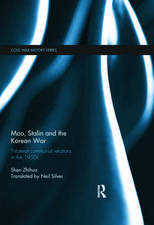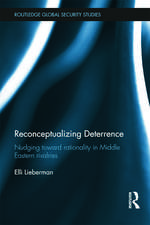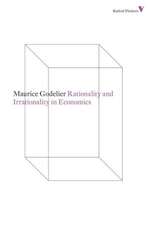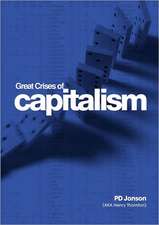Rural Economic Development in Japan: From the Nineteenth Century to the Pacific War: Routledge Studies in the Modern History of Asia
Autor Penelope Francksen Limba Engleză Hardback – 11 noi 2005
Using theories and approaches derived from development studies and economic history the book describes the nineteenth-century development of a diversified, proto-industrial rural economy, focusing on the strategies employed by households as they sought to secure and improve their livelihoods. The book argues that rural people, through their ‘industrious revolution’, played an active part in determining the course of Japan’s agrarian transition and, eventually, the distinctive features of industrial Japan’s political economy, with the result that rural life still figures largely in the reality and imagination of contemporary Japan.
| Toate formatele și edițiile | Preț | Express |
|---|---|---|
| Paperback (1) | 424.87 lei 6-8 săpt. | |
| Taylor & Francis – 17 mai 2007 | 424.87 lei 6-8 săpt. | |
| Hardback (1) | 1283.57 lei 6-8 săpt. | |
| Taylor & Francis – 11 noi 2005 | 1283.57 lei 6-8 săpt. |
Din seria Routledge Studies in the Modern History of Asia
-
 Preț: 326.40 lei
Preț: 326.40 lei -
 Preț: 311.41 lei
Preț: 311.41 lei -
 Preț: 317.76 lei
Preț: 317.76 lei -
 Preț: 310.95 lei
Preț: 310.95 lei -
 Preț: 311.91 lei
Preț: 311.91 lei - 9%
 Preț: 901.51 lei
Preț: 901.51 lei -
 Preț: 379.30 lei
Preț: 379.30 lei - 28%
 Preț: 711.72 lei
Preț: 711.72 lei - 18%
 Preț: 1278.70 lei
Preț: 1278.70 lei - 18%
 Preț: 948.84 lei
Preț: 948.84 lei - 18%
 Preț: 1055.21 lei
Preț: 1055.21 lei - 18%
 Preț: 1331.76 lei
Preț: 1331.76 lei - 18%
 Preț: 1003.30 lei
Preț: 1003.30 lei - 18%
 Preț: 1060.87 lei
Preț: 1060.87 lei -
 Preț: 424.87 lei
Preț: 424.87 lei -
 Preț: 485.94 lei
Preț: 485.94 lei - 18%
 Preț: 1004.86 lei
Preț: 1004.86 lei - 18%
 Preț: 1326.99 lei
Preț: 1326.99 lei - 18%
 Preț: 1060.87 lei
Preț: 1060.87 lei - 18%
 Preț: 1058.65 lei
Preț: 1058.65 lei -
 Preț: 441.80 lei
Preț: 441.80 lei - 28%
 Preț: 820.03 lei
Preț: 820.03 lei - 18%
 Preț: 1059.84 lei
Preț: 1059.84 lei - 28%
 Preț: 821.79 lei
Preț: 821.79 lei - 18%
 Preț: 1063.65 lei
Preț: 1063.65 lei - 18%
 Preț: 1059.84 lei
Preț: 1059.84 lei - 49%
 Preț: 218.36 lei
Preț: 218.36 lei - 18%
 Preț: 704.83 lei
Preț: 704.83 lei - 18%
 Preț: 1012.10 lei
Preț: 1012.10 lei - 28%
 Preț: 826.86 lei
Preț: 826.86 lei - 18%
 Preț: 1002.18 lei
Preț: 1002.18 lei - 15%
 Preț: 699.14 lei
Preț: 699.14 lei - 18%
 Preț: 1110.77 lei
Preț: 1110.77 lei - 27%
 Preț: 995.07 lei
Preț: 995.07 lei - 26%
 Preț: 765.01 lei
Preț: 765.01 lei - 18%
 Preț: 1059.84 lei
Preț: 1059.84 lei - 28%
 Preț: 821.79 lei
Preț: 821.79 lei - 18%
 Preț: 1056.00 lei
Preț: 1056.00 lei - 18%
 Preț: 1006.07 lei
Preț: 1006.07 lei -
 Preț: 488.71 lei
Preț: 488.71 lei - 18%
 Preț: 996.65 lei
Preț: 996.65 lei - 18%
 Preț: 1051.55 lei
Preț: 1051.55 lei - 18%
 Preț: 1065.78 lei
Preț: 1065.78 lei - 30%
 Preț: 769.10 lei
Preț: 769.10 lei - 18%
 Preț: 1054.43 lei
Preț: 1054.43 lei - 31%
 Preț: 765.01 lei
Preț: 765.01 lei - 18%
 Preț: 1009.21 lei
Preț: 1009.21 lei
Preț: 1283.57 lei
Preț vechi: 1565.33 lei
-18% Nou
Puncte Express: 1925
Preț estimativ în valută:
245.69€ • 266.96$ • 206.51£
245.69€ • 266.96$ • 206.51£
Carte tipărită la comandă
Livrare economică 21 aprilie-05 mai
Preluare comenzi: 021 569.72.76
Specificații
ISBN-13: 9780415368070
ISBN-10: 0415368073
Pagini: 328
Ilustrații: 20 tables and 3 line drawings
Dimensiuni: 156 x 234 x 23 mm
Greutate: 0.77 kg
Ediția:New.
Editura: Taylor & Francis
Colecția Routledge
Seria Routledge Studies in the Modern History of Asia
Locul publicării:Oxford, United Kingdom
ISBN-10: 0415368073
Pagini: 328
Ilustrații: 20 tables and 3 line drawings
Dimensiuni: 156 x 234 x 23 mm
Greutate: 0.77 kg
Ediția:New.
Editura: Taylor & Francis
Colecția Routledge
Seria Routledge Studies in the Modern History of Asia
Locul publicării:Oxford, United Kingdom
Cuprins
1. Rethinking Rural Japan Part 1: The Nineteenth Century: The Establishment of the Diversified Rural Economy 2. Rural Economic Growth in the Nineteenth Century 3. The Rural Economy and the Household 4. Power, Policy and Resistance in the Nineteenth-Century Countryside Part 2: The Agrarian Transition, 1890-1920 5. The Rural Sector and Urban Industrialization 6. The Household and the Village in Transition 7. The Agrarian Question: The Rural Economy and the State Part 3: The Inter-War Years: Crisis and Modernization 8. The ‘Rural Problem’ of the Inter-War Period 9. The Rural Household and the Agricultural Adjustment Problem 10. The Rural Dream 11. Conclusion
Recenzii
'Francks challenges the image of Japanese farmers as victims of industrialization. Applying the tools and concepts devised for analyzing economic development in the contemporary Third World and other micro-level research, she portrays them as post-peasant small-scale producers who exploit both the knowledge of their agricultural environment and whatever scope their household resources allows them for securing and improving their livelihoods.' - Reference & Research Book News
'Useful and thorough book...I would happily assign this one to my students.' - Monumenta Nipponica
'Penelope Francks has written a fine overview of the history of Japanese agriculture from the late Edo period until 1945. Drawing on a wide variety of English and Japanese-language secondary sources, she has made important contributions to our understanding of modern Japan, and of its economic and rural development.'
'A reader who wants to read a synthesis of Japanese agricultural development from 1800 to the Second World War, that is, just before and during Japan’s prewar industrialization, can do no better than turn to this book.'
- Economic History Society 2007, Economic History Review, 60, 1 (2007)
'as a reference work on the many strands of scholarship on rural Japan - political, social and cultural as well as economic - this book is invaluable... because of its readability and wide reach, the book is as useful for students of social or political history as it is for economic historians' - Simon Partner, Journal of Japanese Studies
'Francks challenges the image of Japanese farmers as victims of industrialization. Applying the tools and concepts devised for analyzing economic development in the contemporary Third World and other micro-level research, she portrays them as post-peasant small-scale producers who exploit both the knowledge of their agricultural environment and whatever scope their household resources allows them for securing and improving their livelihoods.' - Reference & Research Book News
'Useful and thorough book...I would happily assign this one to my students.' - Monumenta Nipponica
'Penelope Francks has written a fine overview of the history of Japanese agriculture from the late Edo period until 1945. Drawing on a wide variety of English and Japanese-language secondary sources, she has made important contributions to our understanding of modern Japan, and of its economic and rural development.'
'A reader who wants to read a synthesis of Japanese agricultural development from 1800 to the Second World War, that is, just before and during Japan’s prewar industrialization, can do no better than turn to this book.'
- Economic History Society 2007, Economic History Review, 60, 1 (2007)
'Useful and thorough book...I would happily assign this one to my students.' - Monumenta Nipponica
'Penelope Francks has written a fine overview of the history of Japanese agriculture from the late Edo period until 1945. Drawing on a wide variety of English and Japanese-language secondary sources, she has made important contributions to our understanding of modern Japan, and of its economic and rural development.'
'A reader who wants to read a synthesis of Japanese agricultural development from 1800 to the Second World War, that is, just before and during Japan’s prewar industrialization, can do no better than turn to this book.'
- Economic History Society 2007, Economic History Review, 60, 1 (2007)
'as a reference work on the many strands of scholarship on rural Japan - political, social and cultural as well as economic - this book is invaluable... because of its readability and wide reach, the book is as useful for students of social or political history as it is for economic historians' - Simon Partner, Journal of Japanese Studies
'Francks challenges the image of Japanese farmers as victims of industrialization. Applying the tools and concepts devised for analyzing economic development in the contemporary Third World and other micro-level research, she portrays them as post-peasant small-scale producers who exploit both the knowledge of their agricultural environment and whatever scope their household resources allows them for securing and improving their livelihoods.' - Reference & Research Book News
'Useful and thorough book...I would happily assign this one to my students.' - Monumenta Nipponica
'Penelope Francks has written a fine overview of the history of Japanese agriculture from the late Edo period until 1945. Drawing on a wide variety of English and Japanese-language secondary sources, she has made important contributions to our understanding of modern Japan, and of its economic and rural development.'
'A reader who wants to read a synthesis of Japanese agricultural development from 1800 to the Second World War, that is, just before and during Japan’s prewar industrialization, can do no better than turn to this book.'
- Economic History Society 2007, Economic History Review, 60, 1 (2007)
Descriere
This book outlines the development of the rural economy in Japan from pre-industrial times up to the Pacific War, demonstrating that rural households contributed to the country's industrialization and laid the foundations for the shape of the economy after the Second World War.




















